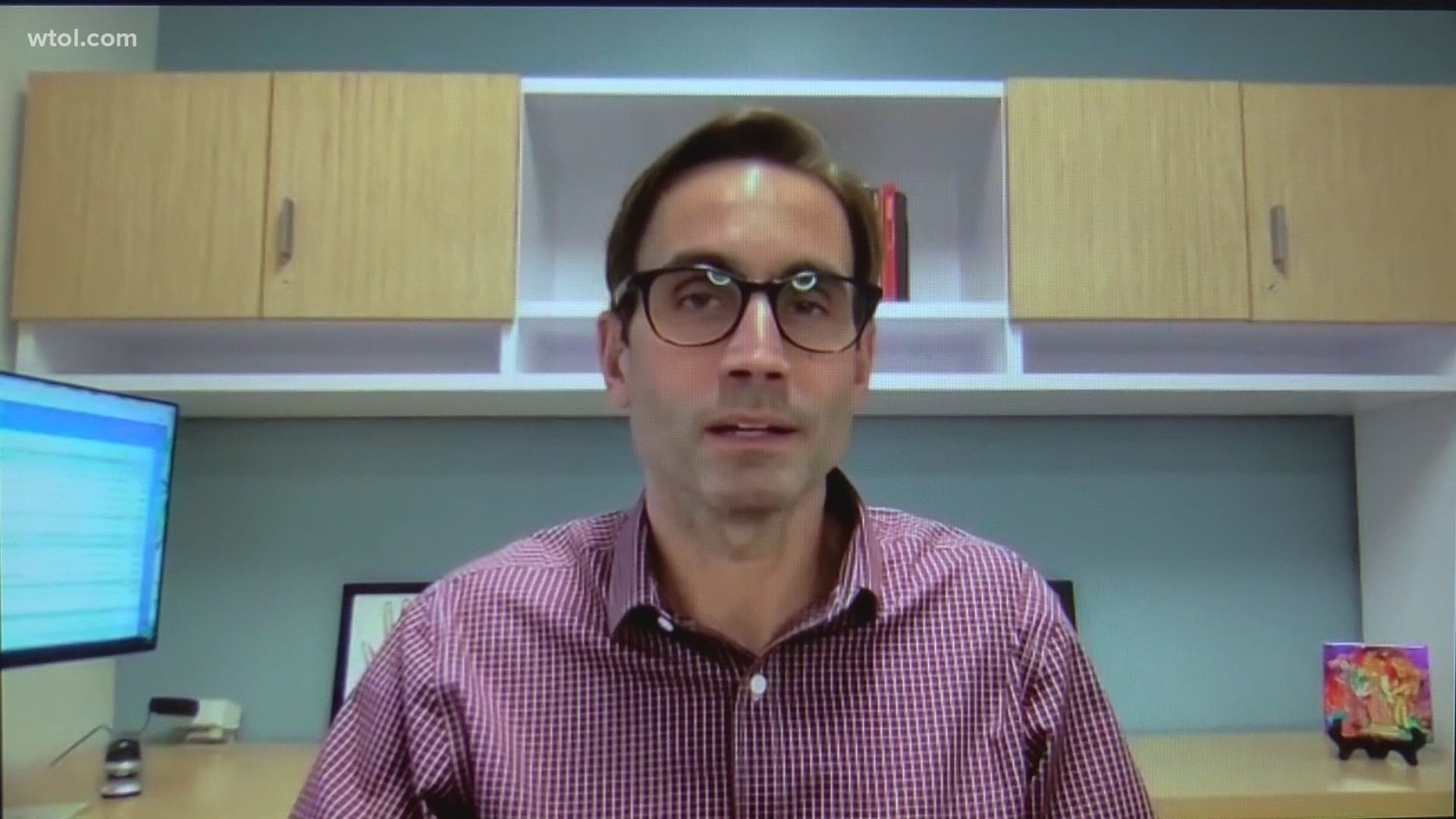TOLEDO, Ohio — A COVID-19 treatment is showing promise for high-risk patients in northwest Ohio and southeast Michigan.
The treatment is called monoclonal antibody (mAb) treatment.
According to ProMedica doctors, your body has antibodies to fight infection, but may not have the ones necessary to fight a newer virus like the one that causes COVID-19.
Monoclonal antibodies are made in a laboratory and are given to patients directly with an intravenous (IV) infusion.
This mAb treatment may help patients who are at high risk for severe symptoms and/or hospitalization, including those who are 65 years of age or older, or who have certain chronic medical conditions.
ProMedica
ProMedica healthcare system has given nearly 800 doses of Bamlanivimab and Regeneron since the U.S. Food and Drug Administration (FDA) approved the mAb treatments last year.
ProMedica's Vice President of Quality and Patient Safety Dr. Brian Kaminski said patients feel relief within hours of the infusion.
"We're observing a reduction in the amount of severe illness, so the likelihood of being hospitalized or likelihood of going into an emergency room after receiving the medication, even if you're in one of those high-risk groups, goes down," Kaminski said. "It's not zero-risk, but the observed reduction is about 70%."
The treatment may help people who:
- Have mild to moderate symptoms of COVID-19
- Have tested positive for COVID-19 sometime in the last ten days
- Are at high risk of getting more serious symptoms
The sooner you get the infusion, the better, otherwise doctors say the disease will advance to a point where the cocktail will no longer be helpful.
"This drug is most effective when it's administered very early, days after the onset of symptoms and definitely prior to 10 days since the onset of symptoms," Kaminski said.
How does mAb treatment compare to convalescent plasma therapy?
Convalescent plasma comes from individuals who had COVID-19 and recovered and still retains the antibodies in their system to protect another individual against the disease.
The difference is, when you receive convalescent plasma, the concentration of antibodies can be extremely variable.
"When you receive monoclonal antibodies, the antibodies have been prepared in a very distinct dose given to a patient that's designed to pack a wallop when it comes to providing enough antibodies to fight COVID," Kaminski said.
ProMedica identifies at-risk patients who come in through urgent care or the E.R. The infusion takes about an hour and then there's a one-hour observation period to make sure there's no type of allergic reaction or side effects.

